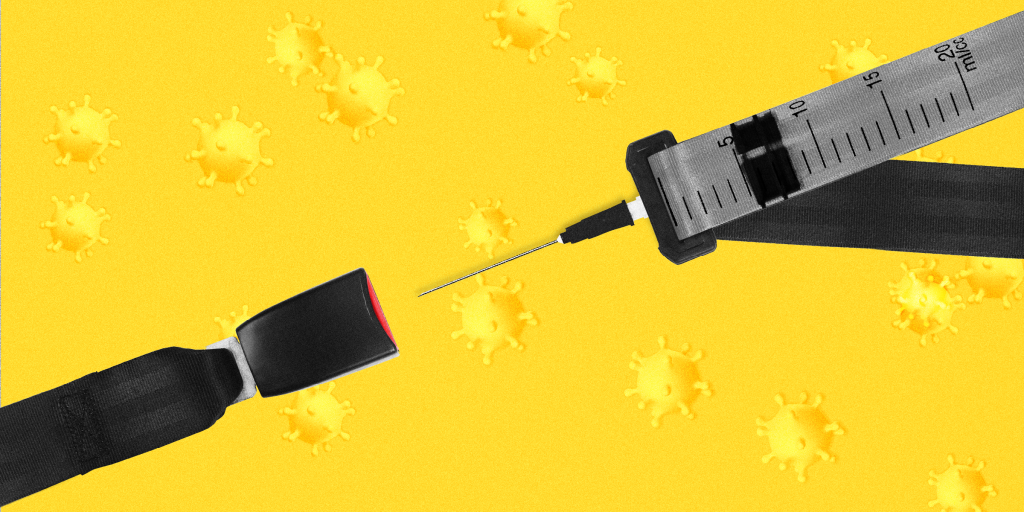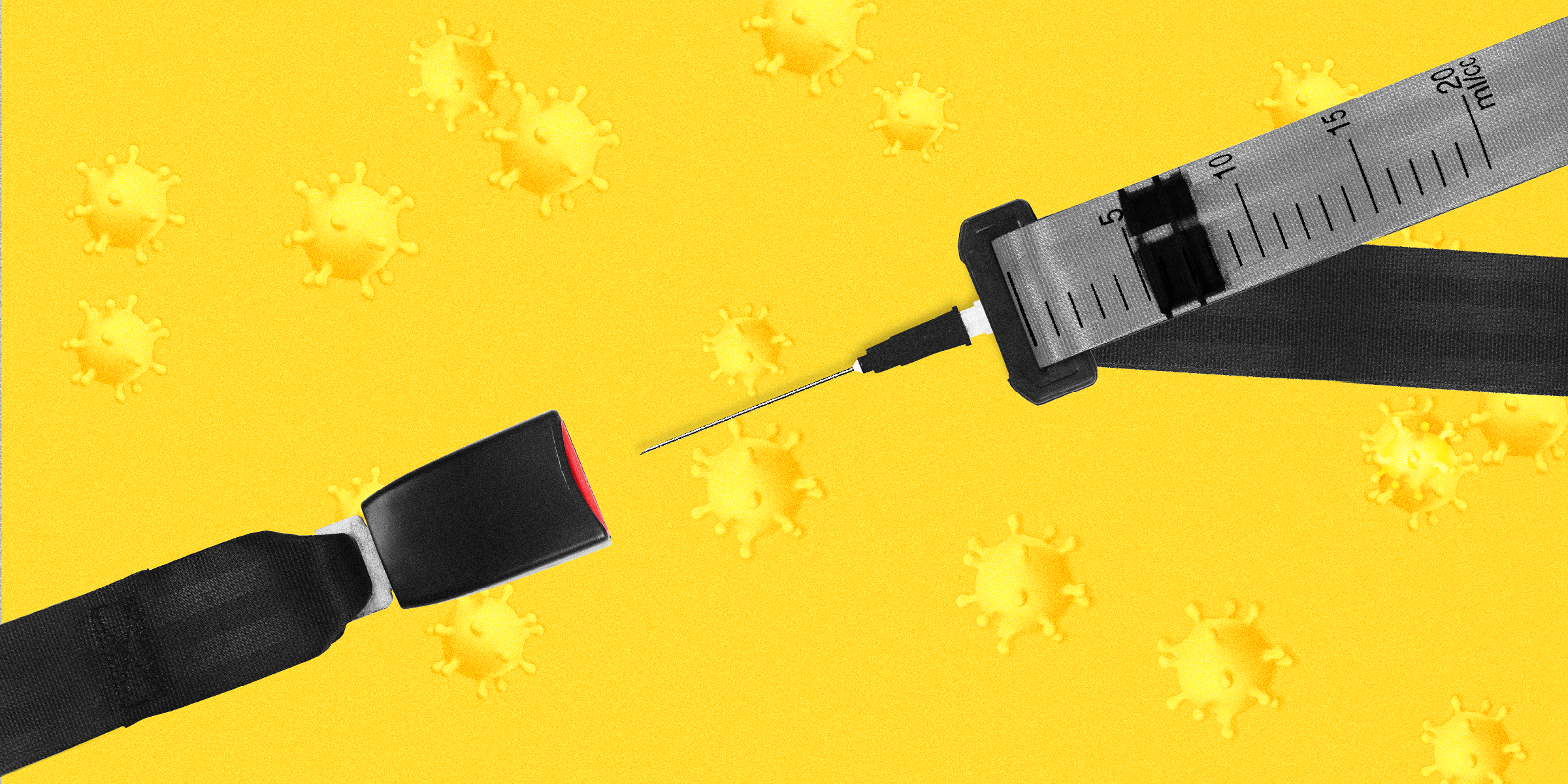
- COVID-19 vaccines aren't perfect, and you can still get sick after you have all your shots.
- But a vaccinated person's infection will likely be milder, because their body has built up its defenses.
- Vaccines are a lot like seatbelts: they save lives, but they can't prevent crashes.
- See more stories on Insider's business page.
Vaccines provide a strong disease-fighting advantage. But they don't make you immune to infection.
When it comes to COVID-19 vaccines, experts say, think of navigating through a partially vaccinated world like driving a car. There are some safety measures in place – seatbelts, airbags, and traffic lights – but driving is not without risk, especially during the stormy Delta surge.
Risk assessment doesn't come naturally to us humans. It's hard to have your guard up when you can't see the threat. That's why public health experts are so fond of analogies.
"Vaccines, they're not magic," immunologist Barney Graham, deputy director of the Vaccine Research Center at the National Institutes of Health, said during a question and answer session earlier this week. "They create a spectrum of immunity that people have to understand, and then people will take a spectrum of risks."
Those risks intensify greatly if people are unvaccinated, and more than 50% of the US is.
Wearing a seatbelt doesn't mean you can take your eyes off the road
Seatbelts protect against serious injury if you get in an accident, but they can't prevent fender benders entirely. Similarly, authorized COVID-19 vaccines have great track records for preventing severe illness.
"These kinds of vaccines were never designed to prevent infection, they were designed to protect your airway and prevent severe disease," Graham said.
Federal records show that getting vaccinated will keep you out of the hospital over 99% of the time, but you can still get infected if you're exposed to someone carrying the virus, and you may get a little sick.
Importantly, you still have to keep your eyes on the road, especially when the terrain is unfamiliar.
Right now, navigating the Delta variant wave is like driving on a steep road with a lot of potholes. The virus is not only easier to catch, it's also easier to transmit, which means not wearing a seatbelt is especially dangerous now, even if most of your friends and family are already buckled in and vaccinated.
It's vital to keep an eye on local case counts, and, depending on your risk tolerance, take a detour to avoid high-risk events.
Getting vaccinated is like obeying traffic rules: It's a life-saving system, but only when we all take part
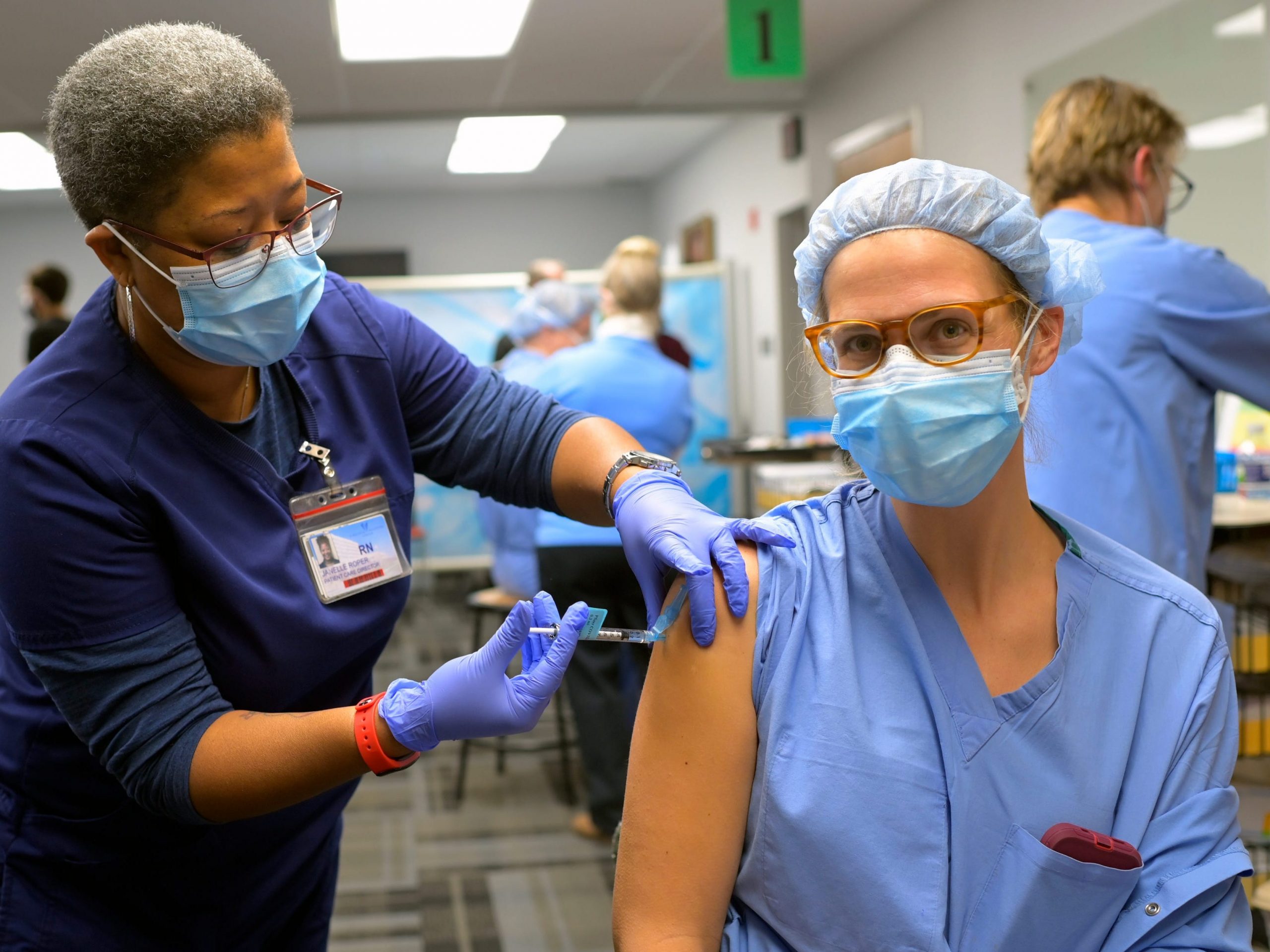
John McDonnell/The Washington Post via Getty Images
Less than half of the US is fully immunized. That's the main reason why we're seeing highly transmissible variants driving new surges.
If half of the cars on the road ignored stoplights, it would be chaos. You'd be more likely to get in an accident even if you still followed the rules.
That's what we're seeing now with more "breakthrough" infections - people getting COVID-19 after vaccination. Without a sturdy level of immune protection, there's more COVID-19 moving around from person to person, and far more opportunities to bump into someone who has the disease.
(Still, the vast majority of recent COVID-19 infections, especially the most severe ones landing patients in hospital beds, are among unvaccinated people.)
By following the rules of the road, you're protecting other drivers
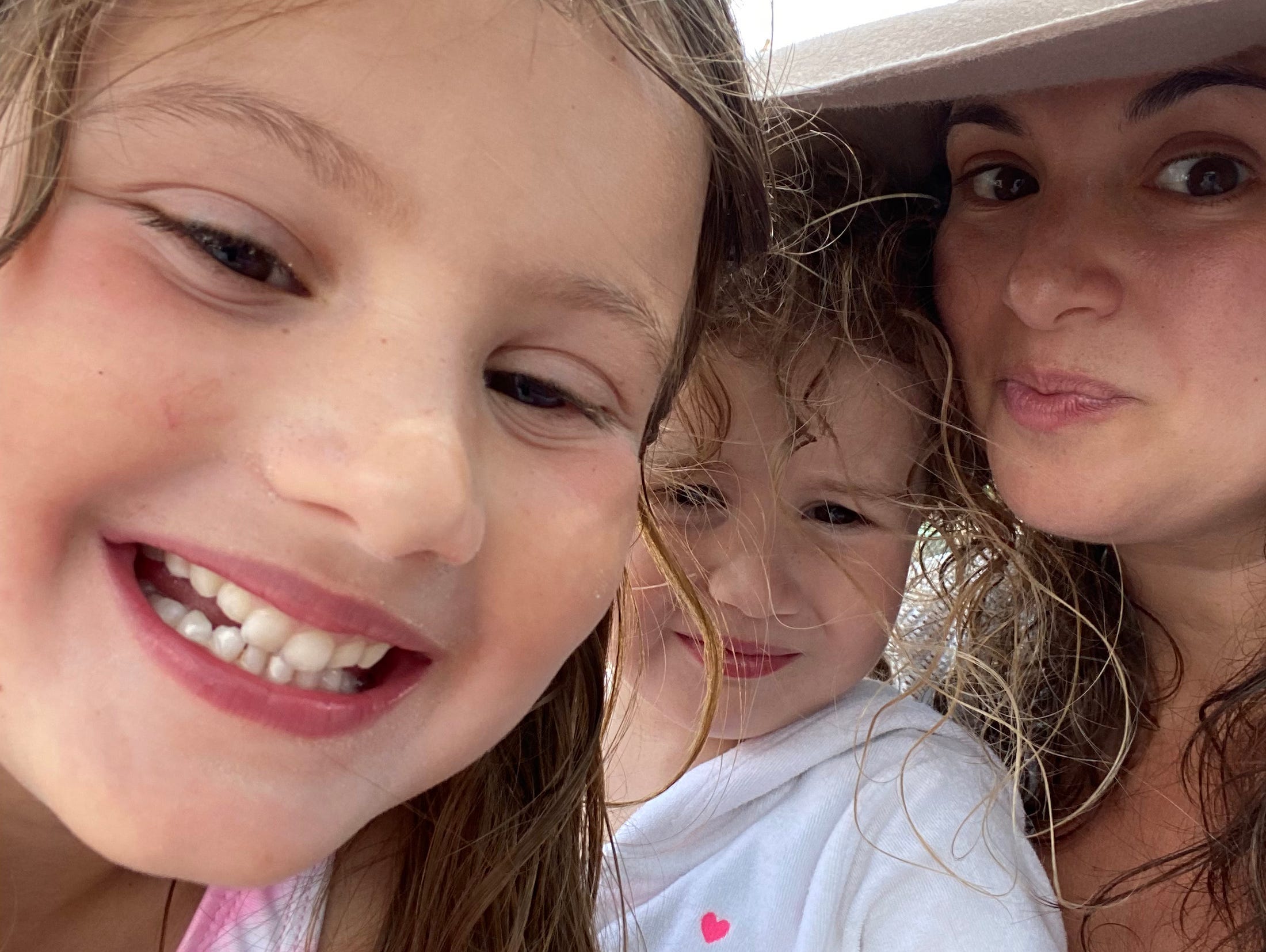
Courtesy of Hilary Young
With Delta around, crash rates are up, and extra precautions, like more masks, are needed.
You might be fine in an accident if you are wearing your seatbelt - but you could injure others who aren't equipped with the same protections.
Already, 80% of Americans over the age of 65 are fully vaccinated. But they can't fight this disease that well on their own.
"When you get to the elderly, especially over the age of 80, you are going to find some breakthrough cases," Dr. Catherine O'Neal, chief medical officer at Our Lady of the Lake Regional Medical Center in Baton Rouge, a hospital now overrun with COVID-19 patients, recently told CNN.
Overwhelmingly, those who are fully vaccinated and end up hospitalized or dead tend to be elderly. The same is true for immunocompromised people like cancer patients and organ recipients, who don't derive the same level of immune-boosting benefits from vaccines that others can.
Kids under 12, who can't get vaccines, are now being hospitalized at higher rates too because they don't have any extra safety protections, like a car seat (vaccine), an airbag (mask mandate), or a place reserved in the back seat (proper ventilation in classrooms) to shield them from a rare COVID-19 crash with Delta.
These vulnerable groups are relying on the rest of the country to get vaccinated. Now, with the more transmissible Delta variant dominating, they need everyone to wear masks indoors in public, since emerging data shows vaccinated people can easily spread the virus too.
The virus is a moving target, and the rules of the road may change accordingly
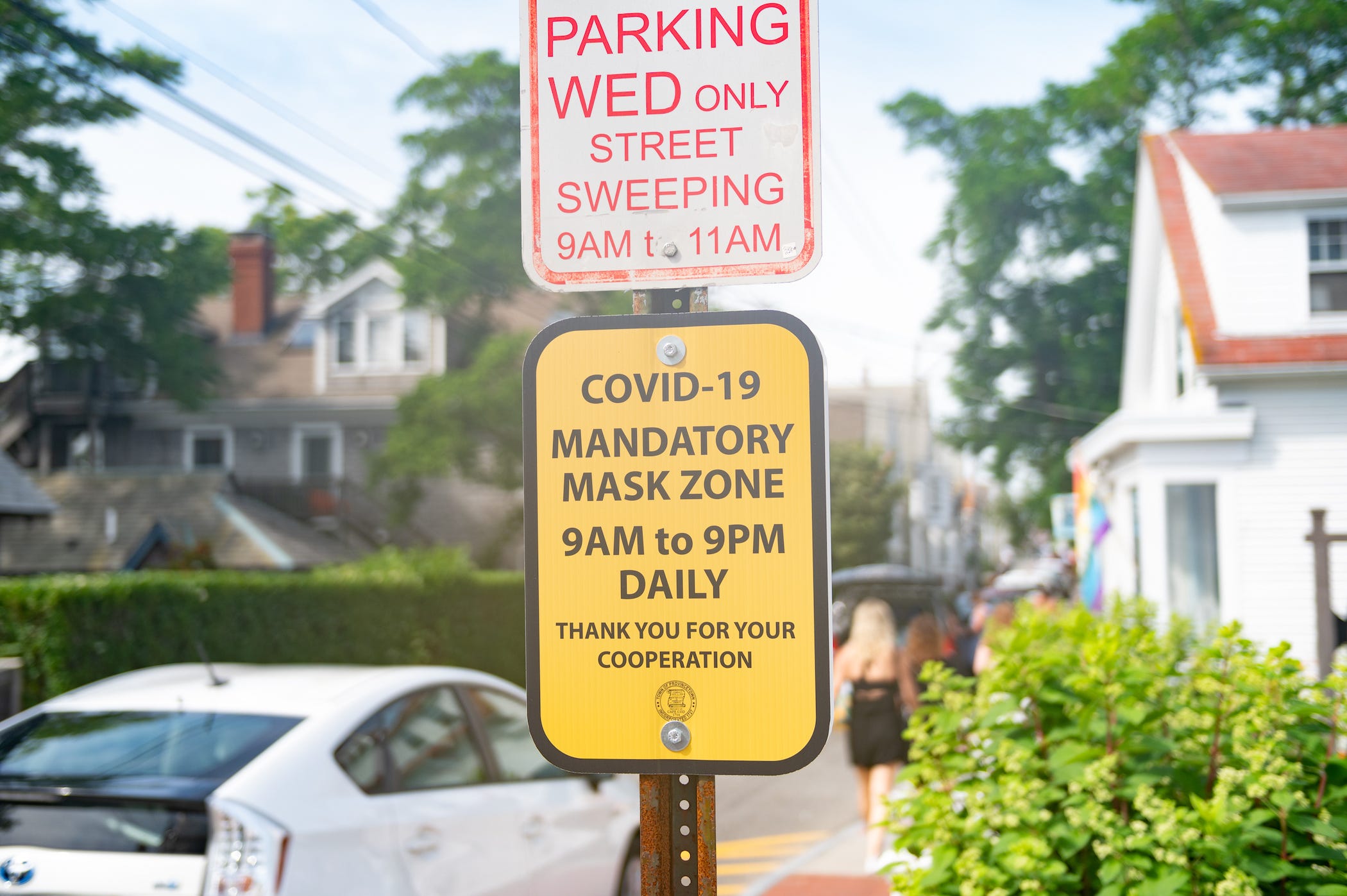
Zach Roberts/NurPhoto via Getty Images
This is not the time for cruise control. We're navigating an entirely new terrain of infectious disease.
The way we think about these vaccines must adjust in real time with the pandemic. If we can't get enough people vaccinated globally, this disease will continue to thrive and circulate, leading to new variants that could pose an even greater threat to our continued existence.
We probably need to develop a better licensing and ticketing system for adhering to the rules of the road during this pandemic. In the meantime, getting vaccinated is a safe way to be buckled in.
